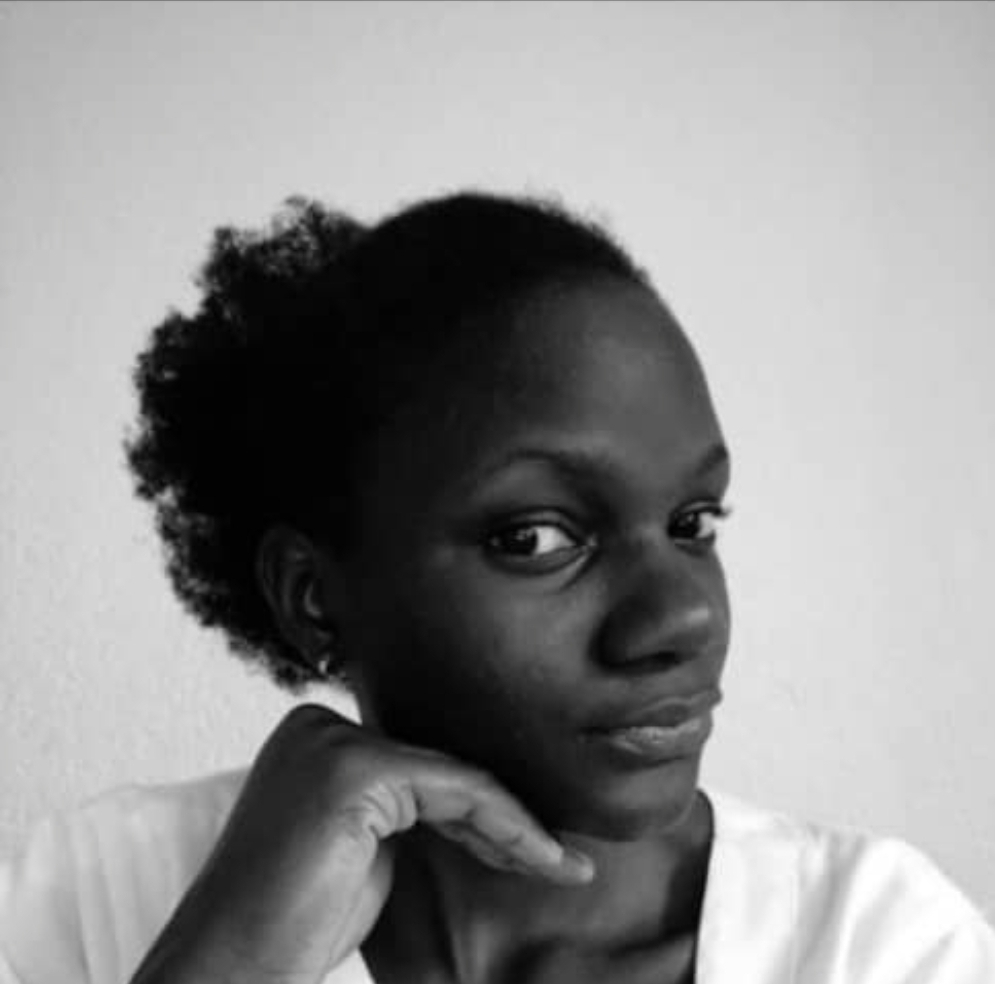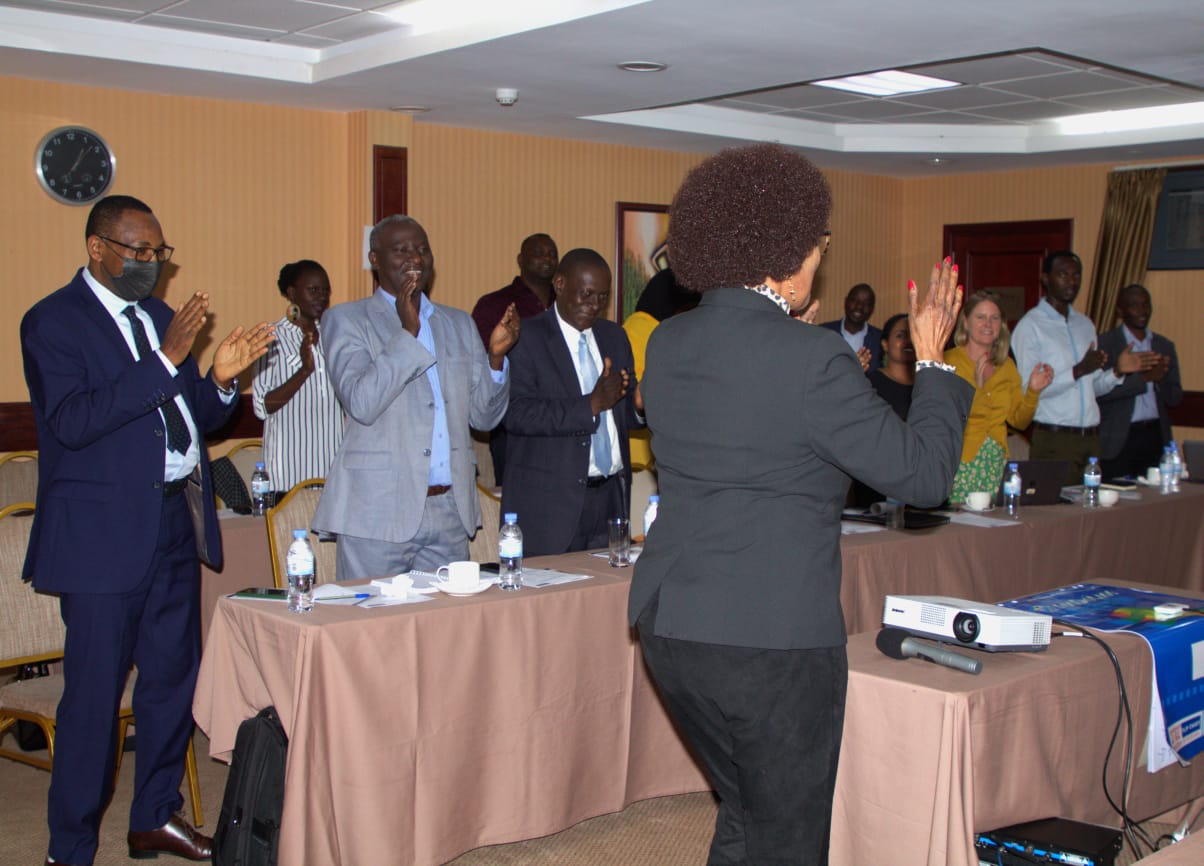Through Rwanda Media Program, FOJO Media Institute together with PAXPRESS Rwanda embarked on a training and mentorship program for journalism students in four universities in Rwanda among which is Mount Kigali University (MKUR).
Since its commencement, journalism students from MKUR have attended training’s and mentorship’s on writing and publishing articles online, creating Podcasts, Gender equality, and TV production and on 10th and 11th November 2022, they presented their “fruits” to the sponsors in an event held at Grand Legacy Hotel Remera.
Launched on 30th July, 2022 with an objective of inspiring students to use the art of writing, photography and sound to tell stories; MKUR online magazine has 45 published articles from the sections of education, entertainment, sports, and lifestyle and 2 podcasts all by the students of journalism.
Represented by the assistant editor Jane Babirye, the journalism students expressed the benefits the magazine has on their education as well as the challenges they’re facing when it comes to publishing stories.
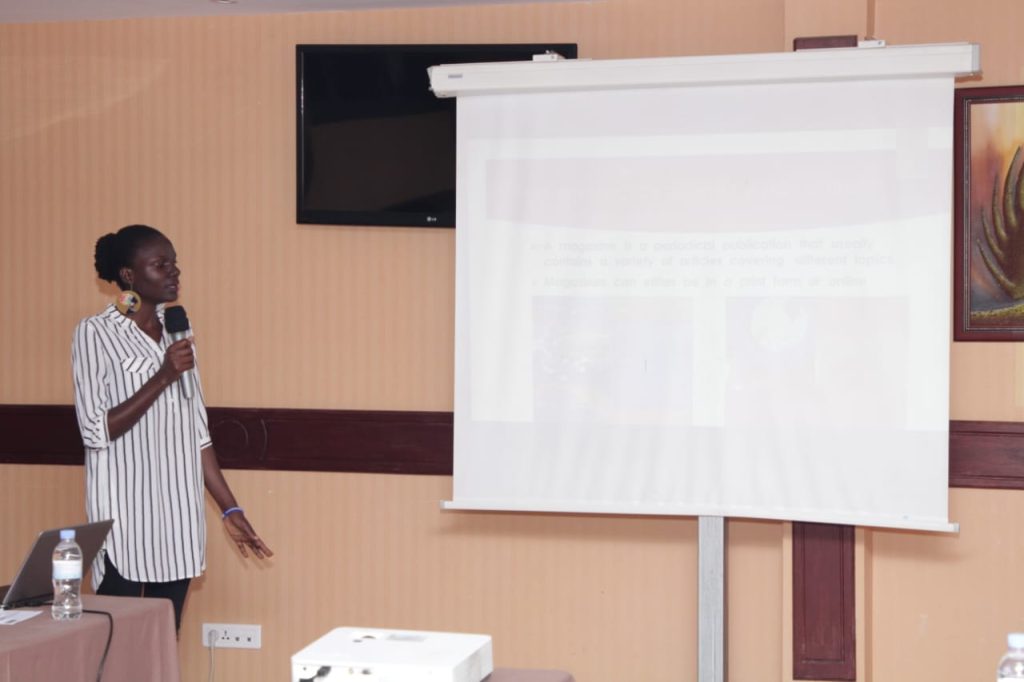
Jane Babirye-Assistant Editor for MKUR online magazine giving her presentation
“ The magazine has helped improve our writing skills, personally I didn’t know that I could write but when I started writing for the school magazine, my passion grows day by day and anything I see of late, I want to put it in writing”, Jane said.
She adds that although she would love to write all the time, her and a couple of other students from the magazine club have a challenge of not having sufficient materials to use in form of quality phones, laptops and mobile data.
In her words, Charlene Furaha who represented MKUR Gender club said “You can never change what you didn’t create, women themselves can not fight this battle-men created these discrepancies and so they should invest more in Gender equality”.
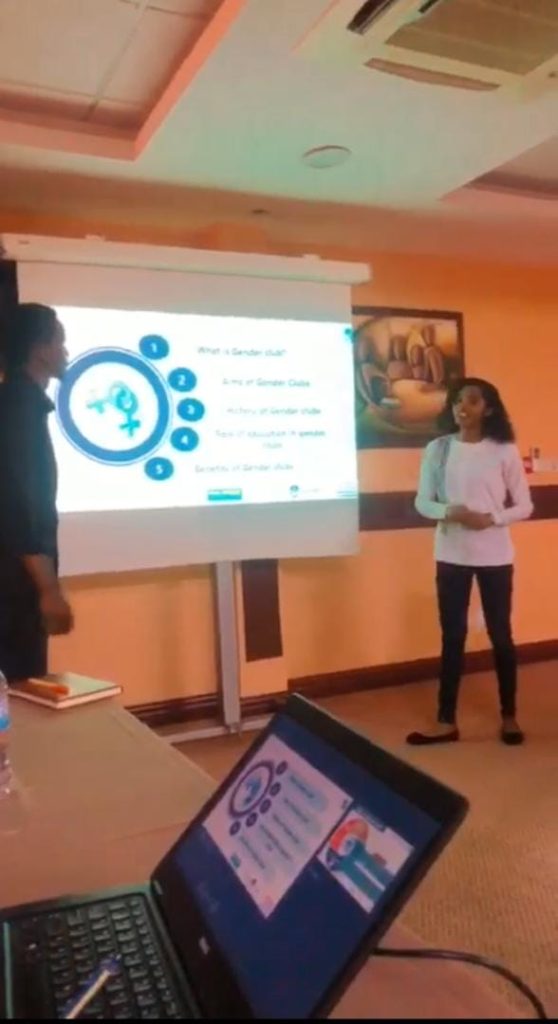
The presentations were made to conclude the eight day visit in Rwanda where delegations of lecturers from universities in Somalia and Ethiopia (also partnering with FOJO Media institute) visited other FOJO partnering universities; EAUR- East African University Rwanda, UR- University of Rwanda, ICK- Institute Catholique de Kabgayi as well as MKUR.
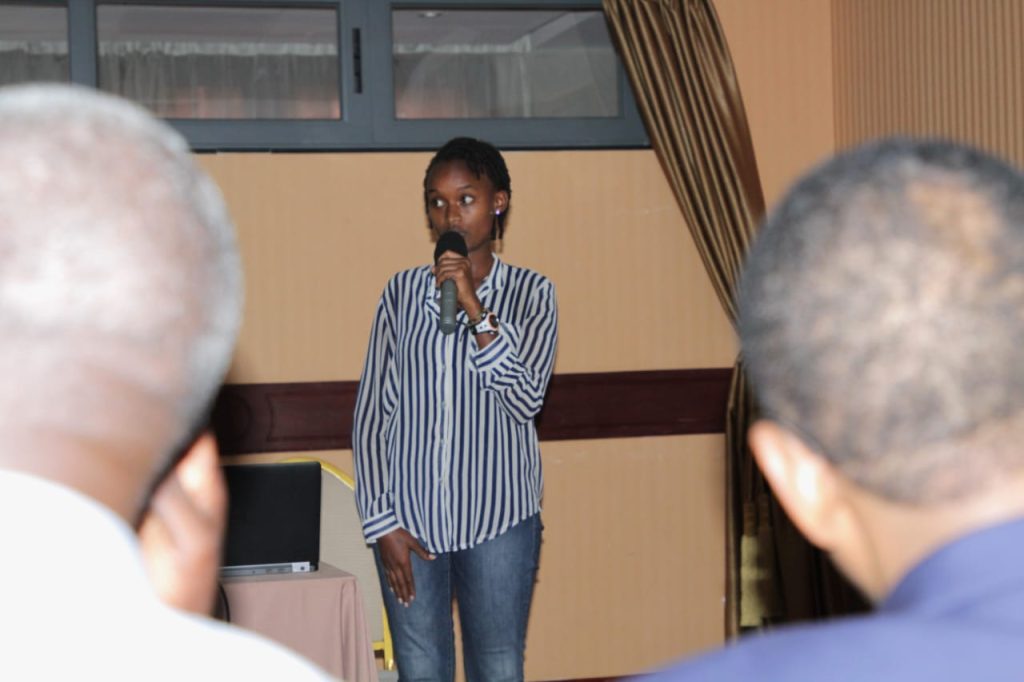
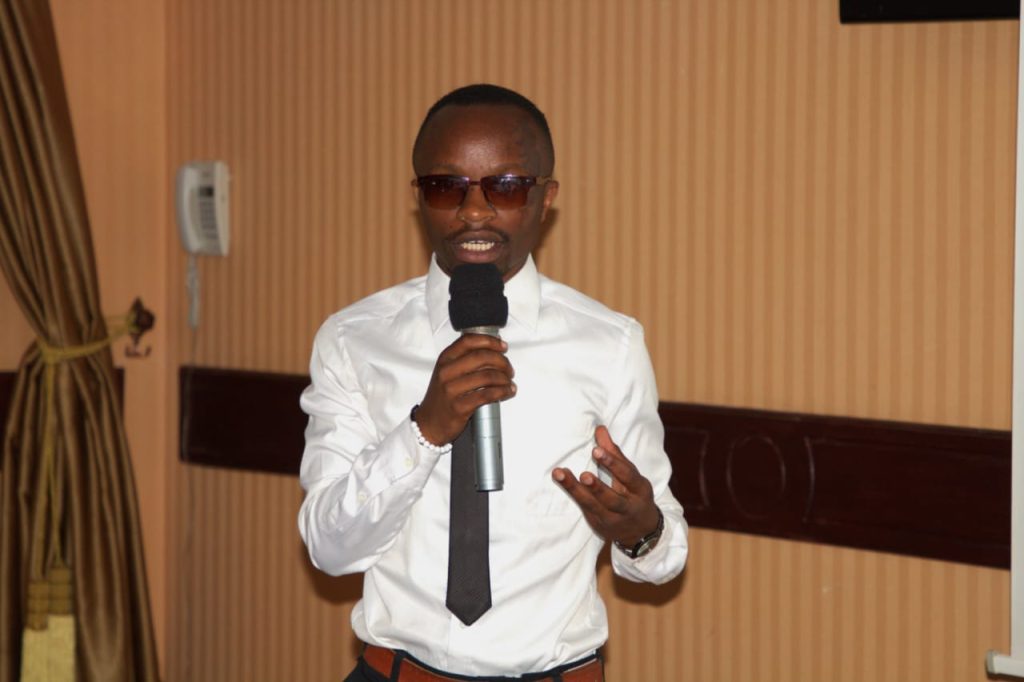
During the delegation, they presented research cases and pedagogic methods from their respective countries.
Professor Abdallah Kadir from Somalia presented on “Media & Dictatorship in Somalia”; how media was closed for 26years because of war, the establishment of Somalia National University (SNU) in 1954 and when it gained status in 1969.
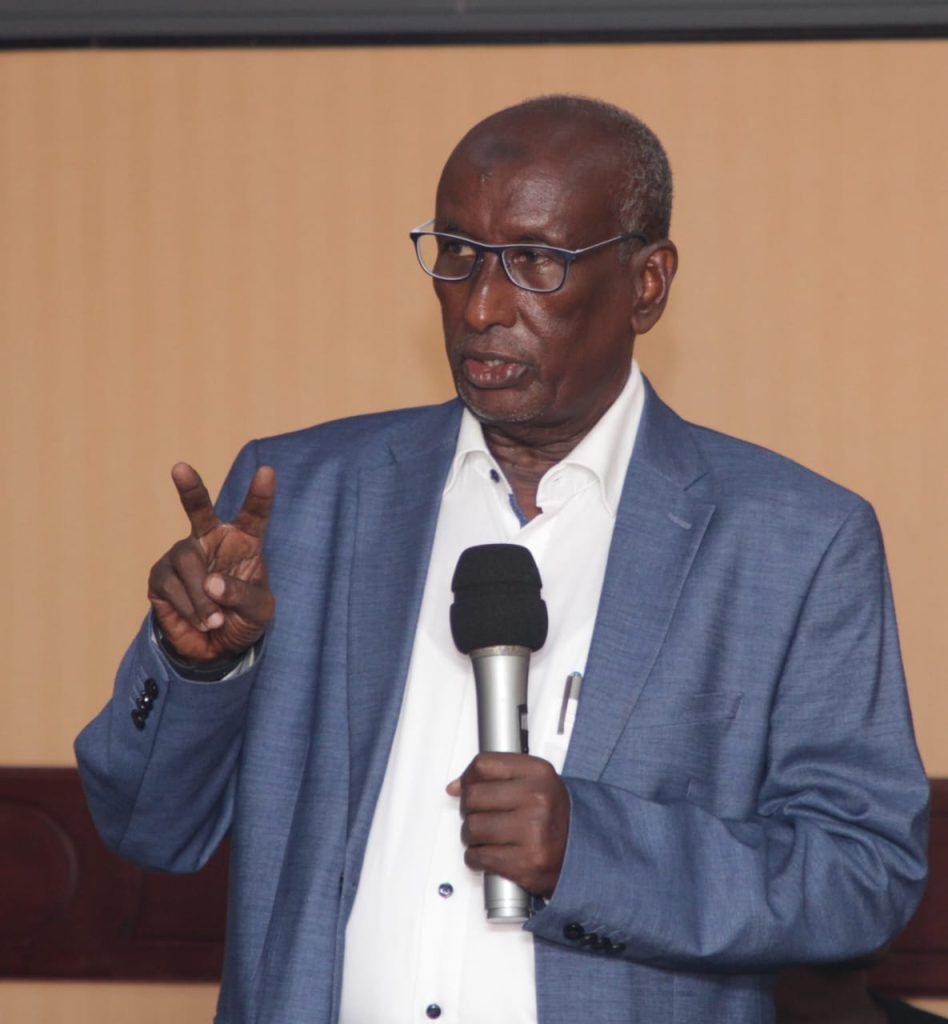
The Faculty of Journalism on the other hand was established in 1991 and he graduated from there in 1993 but because of the civil war, it was closed and all journalists flew, however, it re-opened in September 2017.
Nageye Khalif also from Somalia shared about the environment of Media in Somalia where he expressed concerns about the safety of journalists in Somalia. “ Somalia has the highest rates of journalists killed and just three days ago, one of our students was killed”, he said.
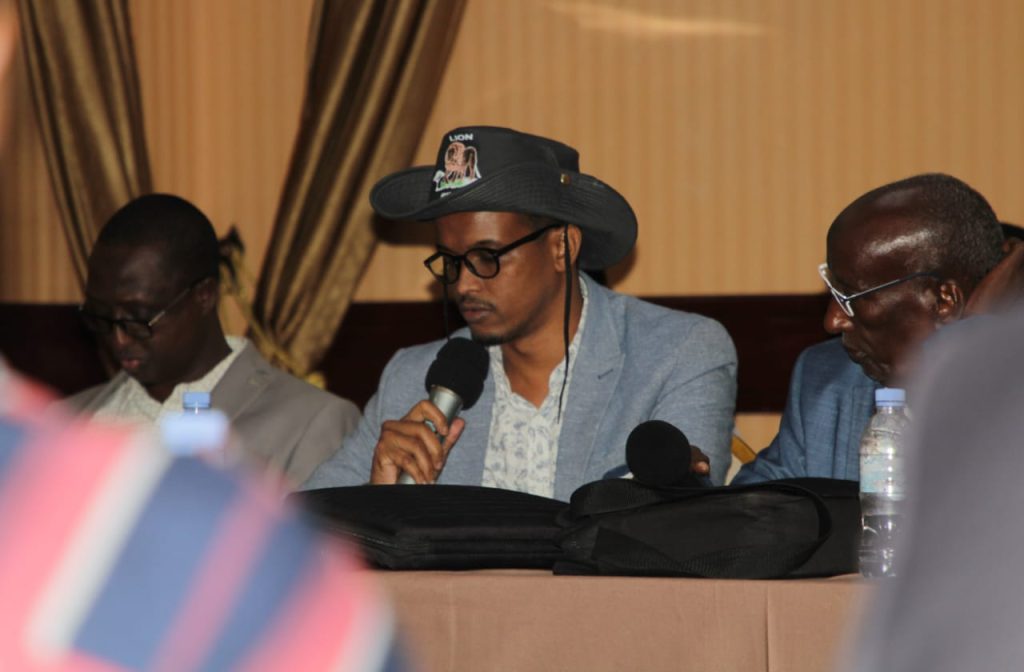
From Ethiopia, on behalf of the Ethiopia Journalism Educators Network (EJEN), Zelalem Tesfaye shared the objectives, goals and scope of the organization which include establishing a vibrant, inclusive and sustainable environment for journalists among other things.
Further more, he couldn’t help expressing the challenges they face while teaching students where he named the lack of laboratories and equipment to use as a major.
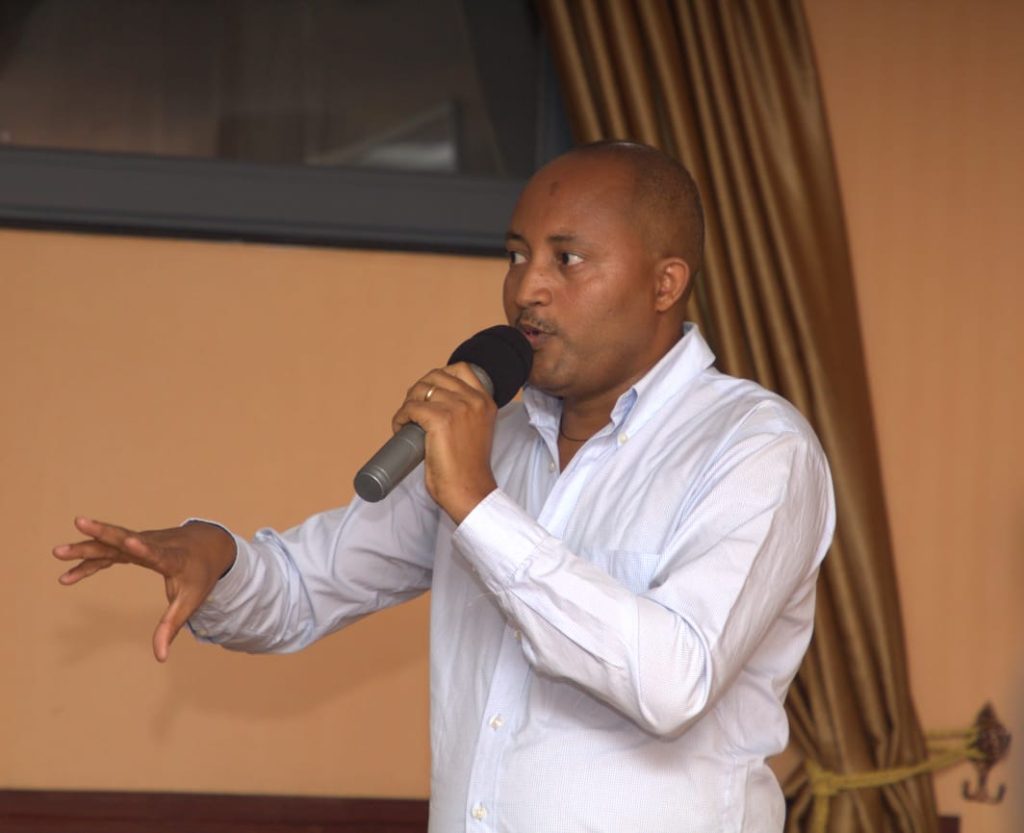
Attending the delegation virtually was Kruger Franz and Jean Mujati from South Africa and Kale from Finland who extended their thanks to the team for organizing the event as well as sharing the way forward for the partnership and collaboration of the universities through the AFRO MEDIA NETWORK.
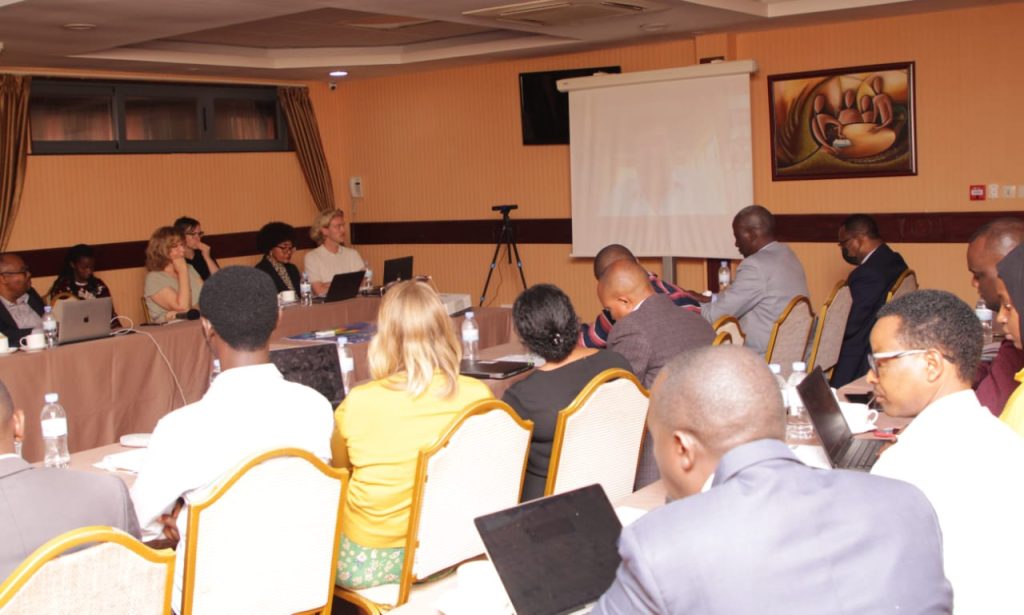
The Dean of Students and head of Journalism departments from the “FOJO Rwandan universities” led by Professor Margaret Jjuuko from University of Rwanda who was also the moderator of the 11th November, 2022 closing event thanked the students for the good work they are doing and called upon FOJO to continue supporting them especially in overcoming the challenges mentioned.
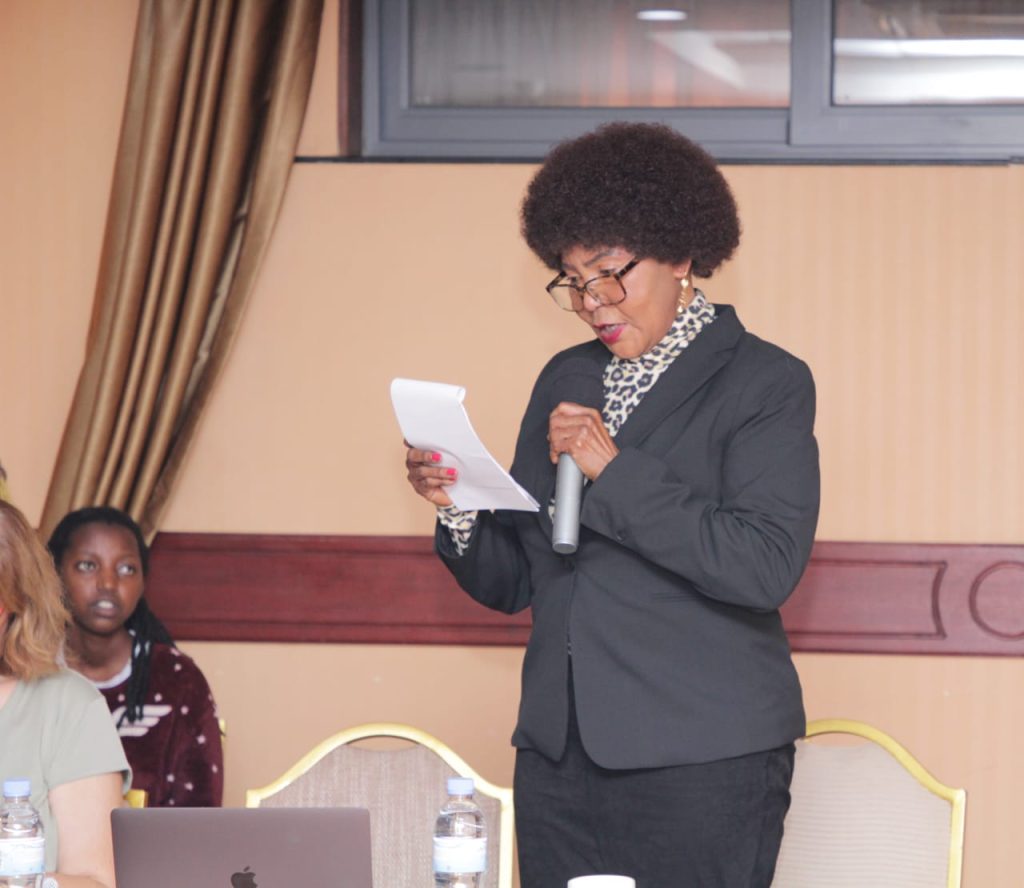
“Our students need to be provided with press cards for easy identification when they go to cover stories because we have received cases where they have been accused of breaking the law” Professor Margaret said.
“The online magazine has helped our students to build resilience, friendships and networks and as such, at East African University Rwanda (EAUR) we will soon launch an online radio and TV”, said Professor Kabera Callixte the Vice Chancellor.
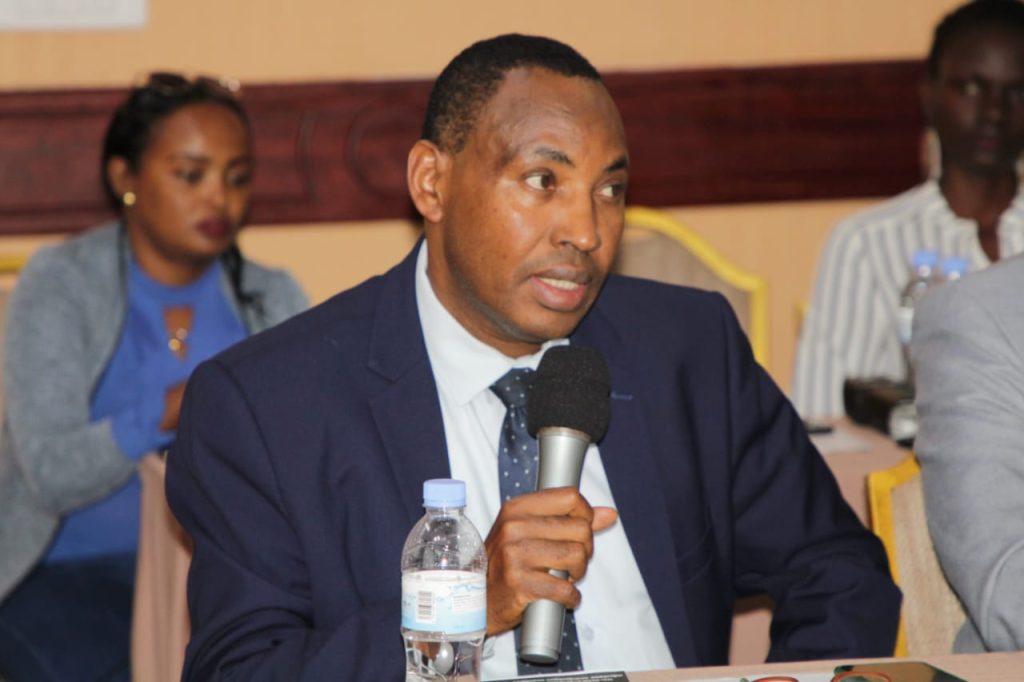
Summing up the event was a question and answer session from students to the delegates a photo taking session and exchange of contacts between students and delegates who were overwhelmed by the great work students in Rwanda are doing.
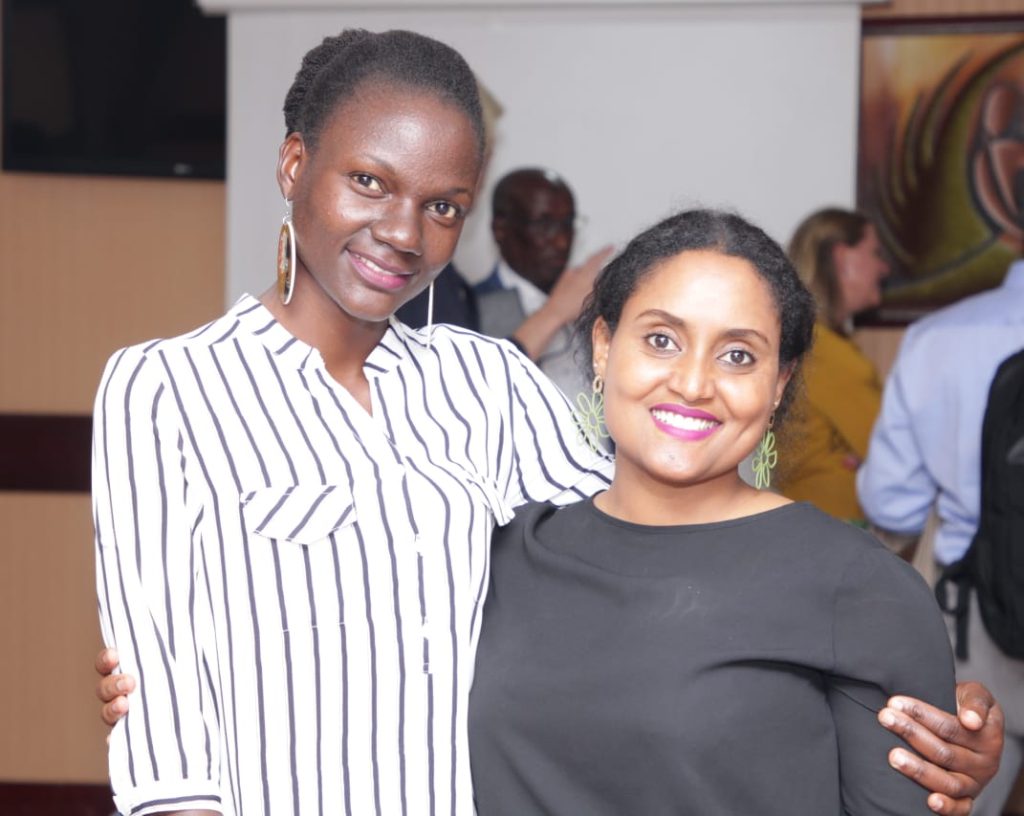
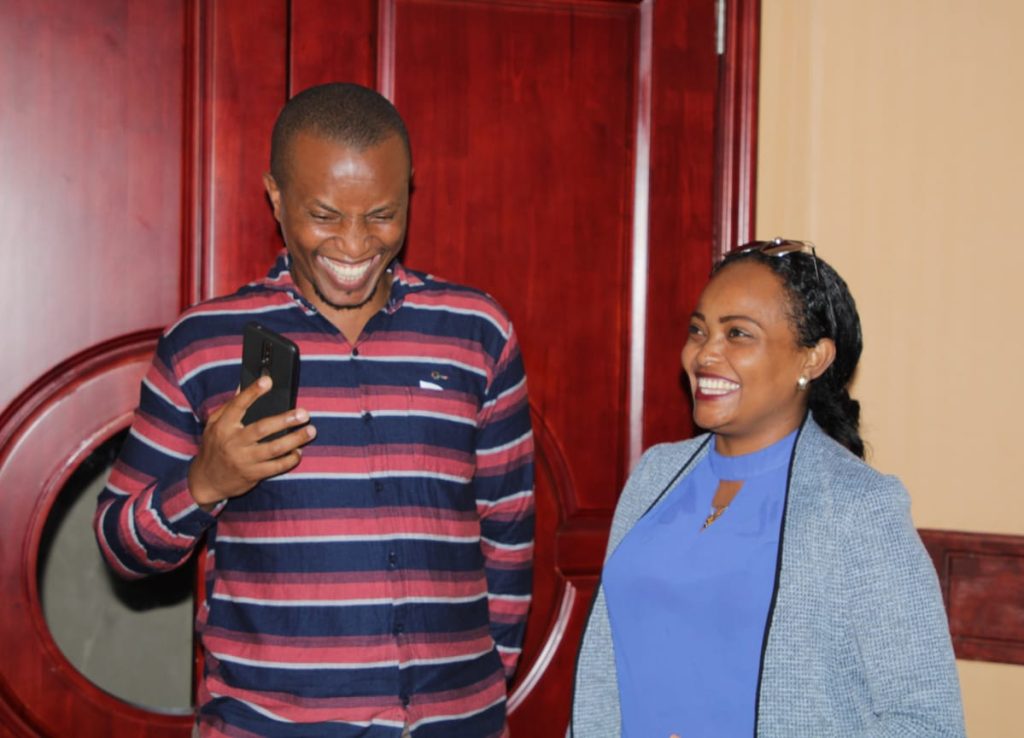
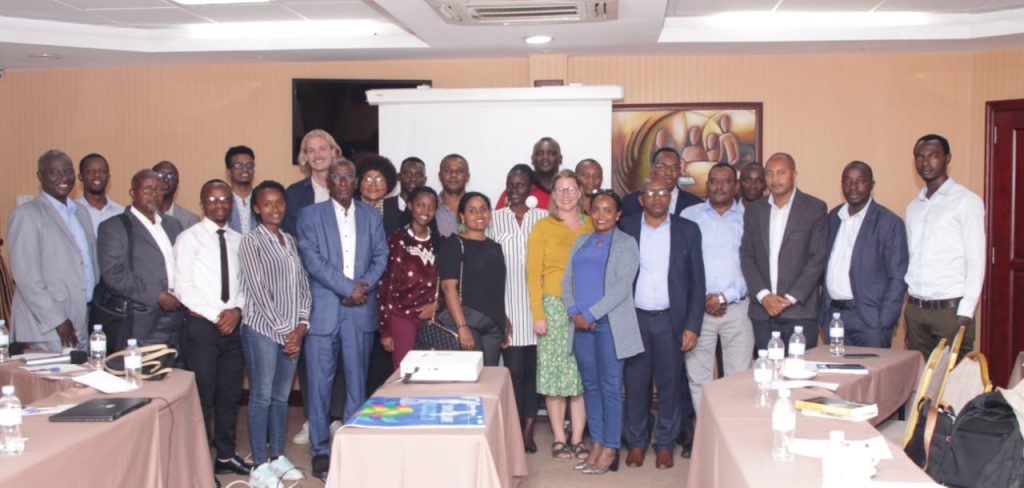
The FOJO media partnership also includes 12 media houses in Rwanda and is expected to run for a period of 5years with an aim to improve the profession of journalism in Africa right from grassroots.

